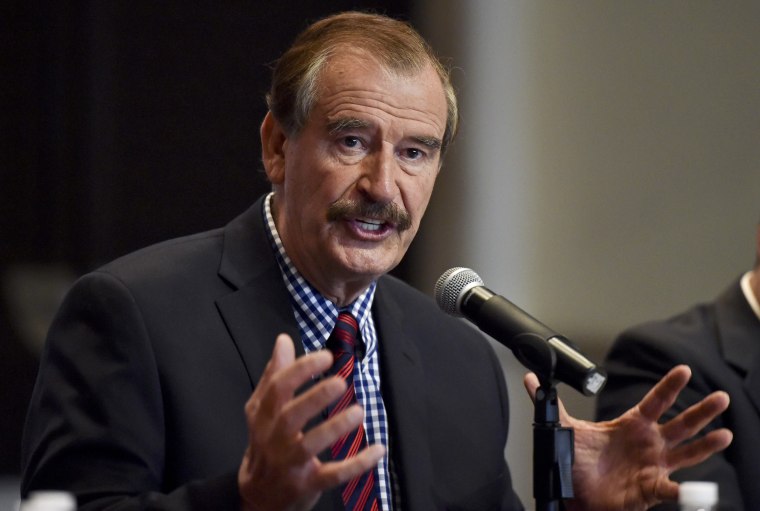Mexico is inching closer to becoming the world’s largest legal cannabis market as lawmakers prepare to debate a proposal to legalize recreational marijuana.
The Chamber of Deputies, Congress’ lower house similar to the U.S. House of Representatives, will take up the issue early next week, Martha Tagle Martínez, a member of the chamber’s health committee, said in a series of tweets.
The Senate approved the legalization of medical marijuana almost four months ago, and two months later, the Health Ministry published rules to regulate the use of medicinal cannabis.
Former President Vicente Fox, who is on the board of global medical marijuana company Khiron Life Sciences Corp., said he sees the potential for Mexico to cash in on much-needed job creation, economic investment and medical advancements.
A regulated market could also help to lessen the cartel violence that has become synonymous with the country.
“Many great things will happen,” he said. “We’re taking away this beautiful plant from criminals and putting in the hands of retailers and farmers.”

Mexico has been steadily marching toward creating a cannabis market since 2015, when a federal judge ruled in favor of importing cannabidiol, more commonly known as CBD, for medical reasons. The ruling stemmed from a case involving a young girl suffering from a severe form of epilepsy.
The parents of the girl, Grace Elizalde, who was 8 years old at the time, had tried just about everything to treat her Lennox-Gastaut syndrome, which triggered 400 seizures a day. At their most desperate, the family drove three hours to Laredo, Texas, to acquire Cosyntropin, a synthetic peptide that can be used to treat seizures. The medication cost more than $5,000, said Grace’s father, Raul Elizalde, who is now the president of the international CBD company HempMeds.
Elizalde eventually reached out to a Mexican lawmaker who publicly supported adopting cannabis legislation in Mexico after Washington state and Colorado legalized recreational marijuana. That lawmaker, Fernando Belaunzarán, wrote a letter to Mexico’s health secretary on behalf of the Elizalde family, seeking permission to import cannabis oil for Grace’s treatment.
Initially, the Health Ministry declined the request, but a federal judge stepped in and allowed Elizalde to import CBD.
“There was not a lot of information back then in 2015,” Elizalde said. “It was hard to find any information about cannabis, especially CBD.”
Elizalde said Grace’s doctor had been interested in research taking place around the world on CBD as a potential treatment for epilepsy and thought it was worth a try for his daughter, who is now 13. Her seizures have decreased to about 20 on a bad day, Elizalde said.
In 2017, Enrique Peña Nieto, the president at the time, signed a bill allowing the medical use of marijuana products containing less than 1 percent of THC, the psychoactive ingredient in cannabis. The bill also called on the Health Ministry to draft and implement regulations for the nascent industry.
It took three more years for Mexico to finalize regulations. During that time, public perception gradually shifted as more families spoke publicly about using cannabis-derived medication to treat various ailments.
“The domino effect is happening,” Fox said. “The No. 1 challenge is to convey, inform and educate consumers and patients. And also educate the medical community. There is still some hesitancy in Mexican culture.”
In a poll published last year in the newspaper El Financiero, 58 percent of respondents opposed full legalization. But among respondents under age 40, more than half said they were in favor of legalizing cannabis.
CLICK HERE FOR FULL ARTICLE ON NBC NEWS


